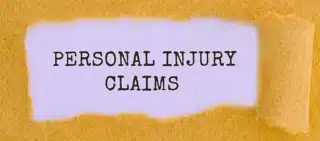
When a Dog Attacks Again and Again If dogs attack once, it’s alarming. When they attack five times, it’s no...


To get answers to your legal questions in Bloomington, you can schedule a free consultation with prospective attorneys that may represent your case. You can also turn to various online and offline sources for free answers to legal questions. These options may include free legal aid programs at the community level and legal resources for specific groups of individuals, such as military members, seniors, and people with disability.
Hiring a seasoned attorney to help you with your legal problem greatly increases your chances of a favorable outcome. You can find an attorney through referrals or attorney directories. Once you locate one, ask the attorney about his or her experience, strengths and weaknesses, and fee arrangements.

If you have a legal problem that seems costly or complicated, you should have it handled with the help of a lawyer. Part of a lawyer's responsibilities involves dispensing legal information. You may also need an attorney for strategic advice on any legal issue. You will need a proficient lawyer to guide you through your legal options. Here are some of the approaches for finding a lawyer:
Speak to close friends or family members who also experienced the legal problem you are currently having. Find out from them how they managed to get out of the problem. If they involved a lawyer, ask whether they can recommend the lawyer to you.
While seeking personal referrals, find out more about the lawyer's reputation. Talk to people who he or she represented or helped in the past. Since the testimonials can be biased, do not rely on the responses alone to hire the individual.
Visit the attorney's website and review his or her about page. Look at his or her practice areas and case history, too. Doing this will help determine if the lawyer is competent enough to handle your legal problem.
Businesspeople who work closely with lawyers can be a great resource for finding a lawyer. They have business relationships with legal counsels operating within a particular area. For instance, real estate brokers, accountants, or insurance agents may give you recommendations if you have a business-related issue.
Lawyer referral services operate with approval from the state bar association. As such, they can recommend lawyers with specific experience levels and qualifications. These service providers also screen any legal professional featured on their platform.
The only thing you cannot find on a lawyer referral website is a lawyer's work style and philosophy. You will have to contact the individual directly for this kind of information.
Offline and online lawyer directories can help you find a lawyer for your case. These directories help you locate legal counsel based on the type of case and location. They can also match you with a professional based on the brief details you give regarding your case.
You can find detailed profiles for each legal counsel in the directory. The profiles highlight the lawyer's experience levels, certification, fee structure, and practice areas. They can also shed light on the individual's approach to law.
You can also find an attorney through local support groups. In particular, a men's or women's support group may be useful when looking for a family attorney. Non-profit organizations that are interested in the legal problem you are currently facing can also help you find representation.
You can also check local advertisements for attorneys operating in your area. These adverts usually have the attorney’s or law firm’s contact information that you can use to inquire.
An initial consultation with an attorney can help you get acquainted with him or her and decide whether to hire that attorney. Additionally, the initial consultation is a great opportunity to get free answers to your legal questions. So, before the meeting date, prepare some questions to help you understand the lawyer's competence and the basic facts of your case. Here are crucial questions you may ask during a free consultation with a would-be attorney:
The legal profession revolves around different practice areas. As such, lawyers are trained to handle different categories of legal problems. These categories may include personal injury, family law, and criminal law.
A Bloomington personal injury lawyer, handles cases like car accidents, slip and falls, dog bites, medical malpractice, and product liability. An injury lawyer may also handle cases involving injuries, illnesses, or medical errors, such as misdiagnosis, traumatic brain injuries, and surgical errors.
A lawyer usually has a specific practice area on which he or she focuses. The attorney's focus practice area should cover the particular legal problem you are having. This way, you hire an attorney familiar with your case who is connected to professionals that can help gather evidence to increase your chances of getting a good settlement offer in a personal injury case.
The attorney should inform you about the good and bad sides of your case. The attorney should not necessarily give you a sure answer when you inquire about the case outcomes. Legal problems can be unpredictable based on the unique circumstances.
The lawyer should develop a strategy that will help get a positive result from the case. He or she should also advise you about the potential obstacles you may face when trying to solve the legal problem.
Be sure to ask the lawyer about his or her strengths and weaknesses when handling a case like yours. Find out more about the reach and limitations of the legal tools the lawyer uses to handle cases.
Most lawyers affiliated with big law firms have large workloads. As such, they tend to have their associates work on some cases to ease the burden.
If you want the lawyer to handle your legal problem by himself or herself, let the lawyer know beforehand. Ask the lawyer if he or she will involve a paralegal or legal secretary to help prepare the paperwork.
The lawyer should represent you in court instead of delegating this task to his or her colleague. And if other people are involved in the case preparation, the lawyer should oversee their work.
Lawyers work under various fee arrangements. A contingency fee structure is the most common fee arrangement for personal injury claims. In this arrangement, injury lawyers take a specific percentage from settlements recovered on behalf of clients. Understanding how much injury lawyers usually take from settlements may help you determine whether to secure legal representation. Only agree to a fee arrangement that favors your financial situation.
You need a solid plan for handling case-related expenses. This way, there will be transparency and accountability on how the money was spent.
The legal costs for pursuing a personal injury claim vary at each stage of the case. These costs include lawsuit filing fees, administrative fees, and information-gathering costs. Expect to also spend money on administrative work and witnesses. Agree with the lawyer who will pay for these expenses and the payment timeline.
In addition to using the initial consultation to determine whether an attorney is the best fit for you, you should take the opportunity to get legal answers regarding your case. You can inquire about the strength of your case, the evidence you will need, the defenses the liable party may present, and the estimated value of your claim. Additionally, you can get crucial information regarding filing deadlines.
Other resources feature easy-to-use and interactive platforms containing answers to legal questions. These include attorney and law school blogs, social media pages for law firms, other legal blogs, and websites that provide legal resources to marginalized communities. While online research can not replace the value of a lawyer in your injury case, it can help you gain an understanding of what the legal battle you may face.
You can find legal aid at the state level if you are an active-duty military member or a veteran. Check out legal clinics in your state dedicated to military members. You may also seek assistance from legal programs run by Veterans Affairs in your state if you are a veteran.
For seniors, the Pension Rights Center and Eldercare Locator are reliable tools for free legal resources. In particular, the Pension Rights Center offers help with retirement savings plans, profit-sharing, and pensions. On the other hand, Eldercare Locator lets you locate legal and aging offices using a zip or state code.
The National Disability Rights Network offers free legal tools and information to people living with disabilities. It is run by legal advocates statewide.

When a Dog Attacks Again and Again If dogs attack once, it’s alarming. When they attack five times, it’s no...

Overview of the Personal Injury Claim Process in Illinois No one expects to suffer an injury or get involved in...

Exploring Caps on Damages in Illinois Personal Injury Cases Illinois does not have laws capping damages in successful personal injury...